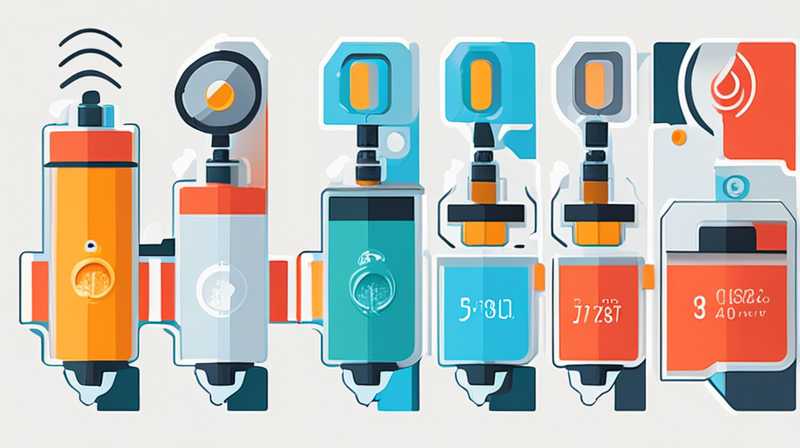
Is the solar valve antifreeze? How many degrees
To answer the query posed, it is essential to note that solar valves do not inherently have antifreeze properties, the function primarily revolves around managing fluid temperatures, commercially available antifreeze solutions are often integrated within systems using solar valves, the operating temperature of fluids within these systems can significantly influence the performance and longevity of various components. In regions where temperatures descend significantly, it is prudent to use appropriate antifreeze solutions to prevent fluid freezing. The solar valve itself regulates the flow between heat transfer fluids, ensuring optimal performance regardless of ambient conditions. It is crucial to maintain temperatures above the freezing point; most solar thermal systems with antifreeze solutions are effective down to -25 degrees Fahrenheit (-31 degrees Celsius), depending on the type of antifreeze employed and system design.
1. UNDERSTANDING SOLAR VALVES
Solar valves play a crucial role in solar thermal systems. They are designed to ensure the efficient transfer of heat from solar collectors to the distribution system. A nuanced understanding of their operation reveals that they manage the flow of heat transfer fluids, aiding in both heating and cooling processes depending on the demand and ambient temperatures.
These valves can be categorized into several types, such as motorized, manual, and automatic, each serving distinct purposes within various applications. The complexity of the systems they are part of can shape their functionality and the specific requirements regarding antifreeze properties. As temperatures drop, the risk of fluid freezing increases, making antifreeze critical in certain climatic zones to maintain the integrity of a solar heating system.
2. ANTI-FREEZE IN SOLAR THERMAL SYSTEMS
Within solar thermal systems, the use of antifreeze is essential, particularly in colder climates where ambient temperatures can fall below the freezing point of water. A common misconception is that solar valves possess antifreeze characteristics, which is not accurate; rather, it is the heat transfer fluid employed that typically carries these properties.
Most solar thermal systems utilize a glycol-based antifreeze solution, which effectively lowers the freezing point of the fluid within the system. When properly formulated, such solutions retain excellent fluidity and thermal conductivity, essential for maintaining system efficiency. Furthermore, the choice of antifreeze impacts corrosion resistance, boiling point elevation, and overall performance of the solar installation.
3. PERFORMANCE AT EXTREME TEMPERATURES
Another aspect to analyze is how solar thermal systems equipped with antifreeze solutions perform at extremely low temperatures. In practice, systems are designed to operate efficiently down to specific degrees, which can vary based on system components and fluid composition.
One must consider that some antifreeze mixtures can function effectively to -25°F (-31°C) or even lower, contingent on the specific glycol mixture and concentrations used. This robust performance allows solar thermal systems to continue operating effectively even when outdoor conditions are harsh. However, it is critical to regularly monitor fluid conditions, as the efficacy of antifreeze can diminish over time, necessitating periodic testing or replacement of the fluid.
4. TESTING AND MAINTENANCE RECOMMENDATIONS
For the longevity of solar thermal systems, regular assessments are paramount. Testing antifreeze concentration should be conducted at least once a year, ensuring that the ratio is appropriate to prevent freezing and to maintain optimal heat transfer capabilities. Using a refractometer or hydrometer can provide insight into the antifreeze level and its efficacy against freezing.
Moreover, maintenance includes inspecting the solar valves for any signs of wear or damage that could compromise the fluid flow. Leaks or blockages can severely impact system performance, particularly during the cold months when antifreeze efficacy is paramount. Thus, regular system reviews can ensure not only the safety and efficiency of the solar heating system but also extend its operational lifespan significantly.
FAQs
IS THE SOLAR VALVE ANTI-FREEZE SOLUTION?
Solar valves themselves are not antifreeze solutions; however, they control the movement of heat transfer fluids that often contain antifreeze properties. It is essential to use appropriate fluids designed for low-temperature operations to prevent freezing within a solar thermal system. The choice of fluid depends on the specific application, often incorporating glycol mixtures that lower the freezing point effectively.
HOW DOES TEMPERATURE AFFECT SOLAR THERMAL SYSTEMS?
Temperature plays a significant role in the performance of solar thermal systems. Inadequate antifreeze protection can lead to fluid freezing, which may damage components and impede functionality. Properly designed systems with antifreeze accommodated can operate efficiently even in extreme temperatures, often down to -25°F. Thus, maintaining the integrity of the heat transfer fluid is crucial for optimal system performance.
WHAT ARE THE COMMON TYPES OF ANTI-FREEZE USED IN SOLAR THERMAL SYSTEMS?
The two primary types of antifreeze used in solar thermal applications are propylene glycol and ethylene glycol. Both serve to lower the freezing point of the fluid used within the system. Propylene glycol is less toxic and commonly used in residential applications, while ethylene glycol tends to offer better heat transfer efficiency but poses higher toxicity risks, making it better suited for industrial applications.
FINAL THOUGHTS
In the realm of solar thermal systems, understanding the intricacies of solar valves and their interaction with antifreeze solutions is essential for optimal performance. While the solar valve does not possess antifreeze attributes on its own, it is responsible for regulating the heat transfer fluid within the system, which may very well contain antifreeze formulations. It is vital to ensure that the fluids used can withstand cold temperatures without freezing, protecting solar installations from potential damage. Moreover, utilizing proper antifreeze solutions allows solar thermal systems to operate efficiently, even in challenging environmental conditions. Regular testing and maintenance of both the fluids and the systems play a crucial role in sustaining operational integrity and longevity. With advancements in technology and formulation, modern solar thermal systems can adapt to a wide range of climatic challenges, harnessing solar energy effectively and sustainably throughout the year.
Original article by NenPower, If reposted, please credit the source: https://nenpower.com/blog/is-the-solar-valve-antifreeze-how-many-degrees/


